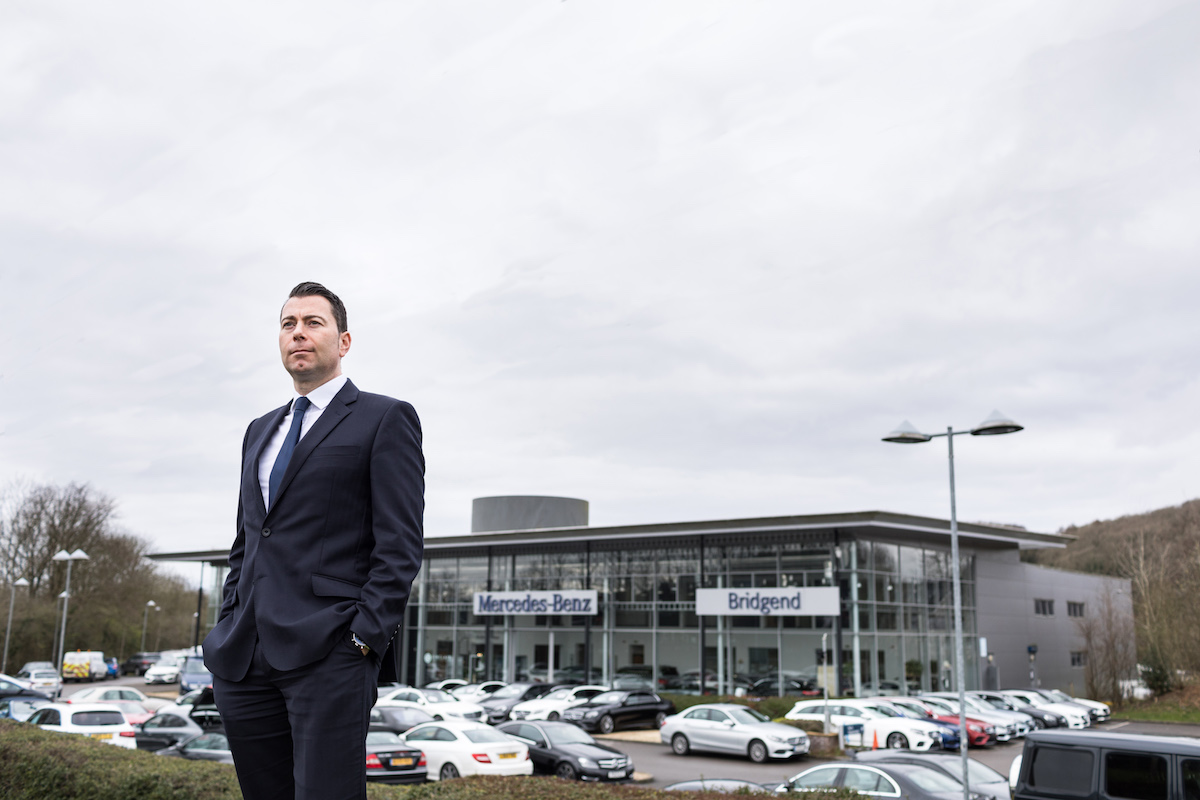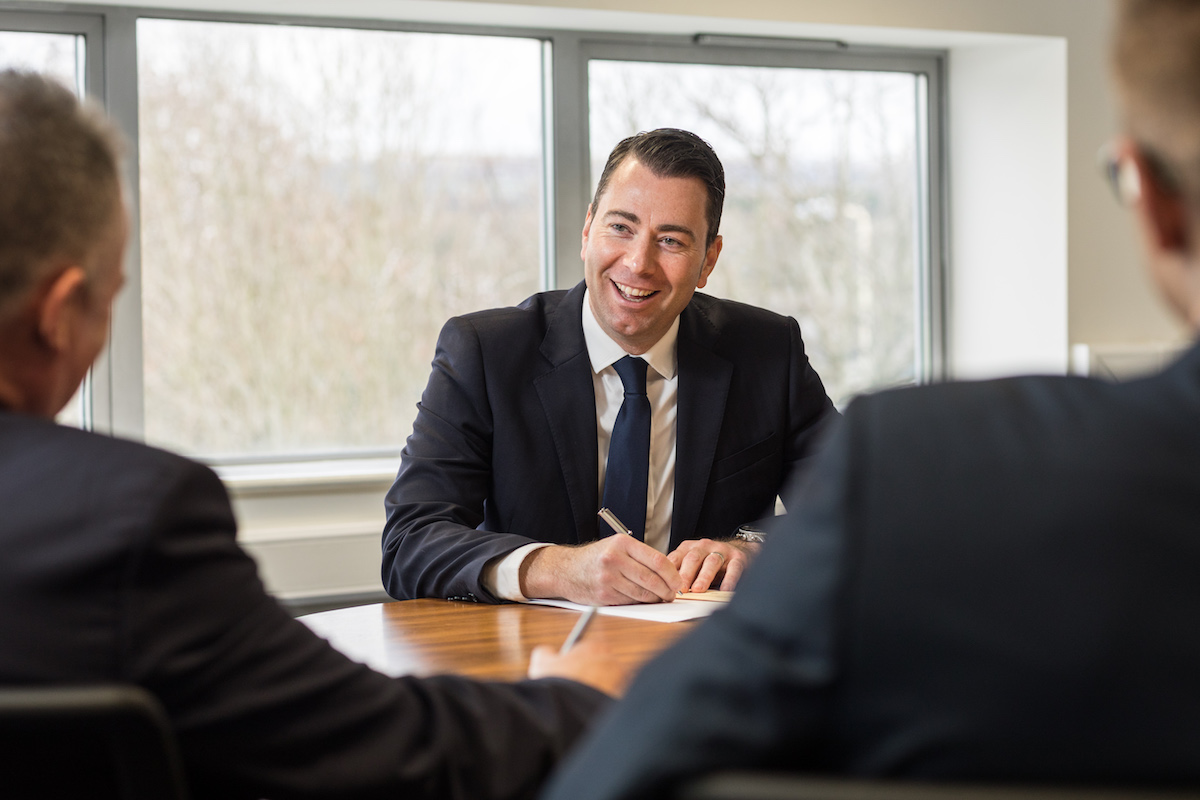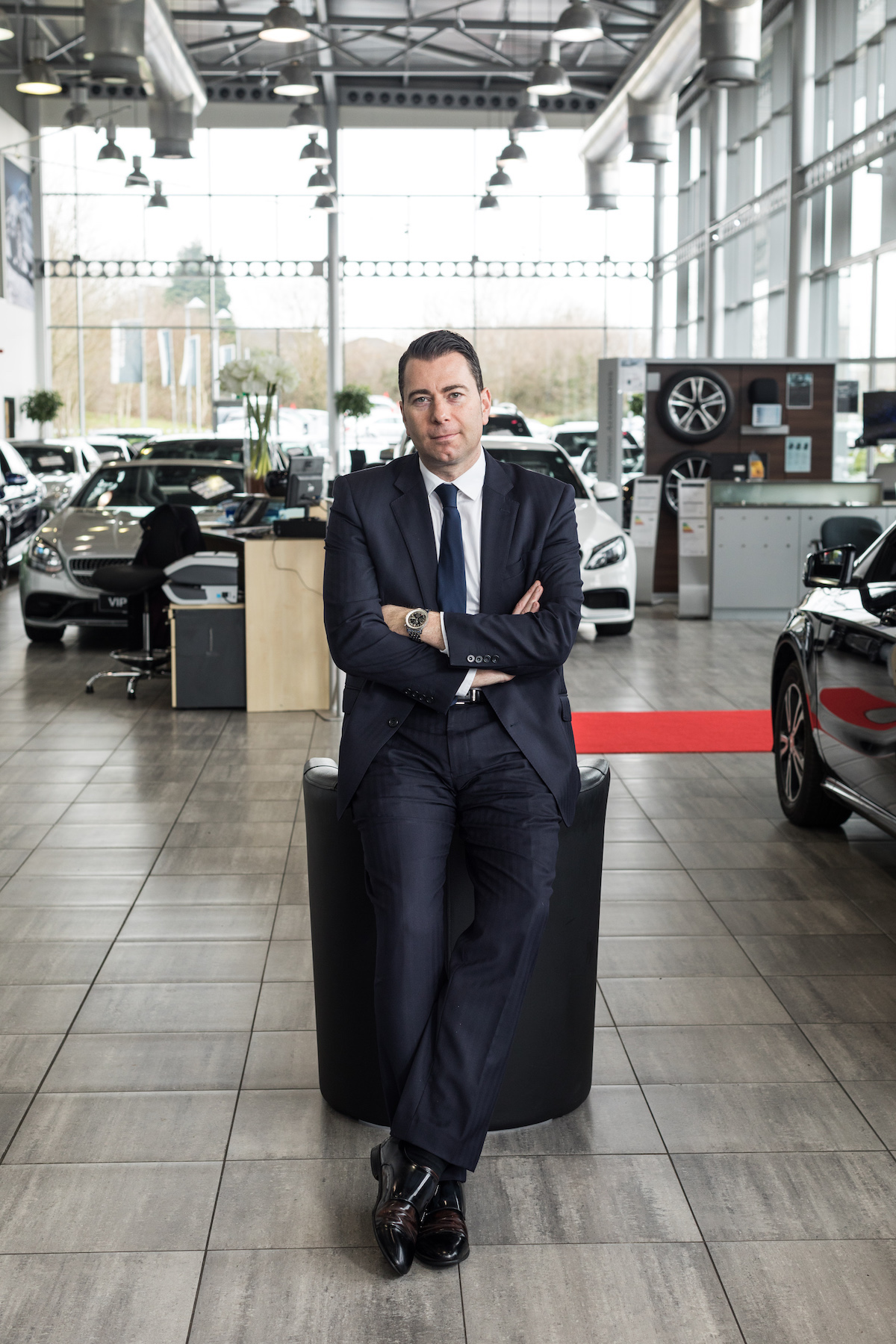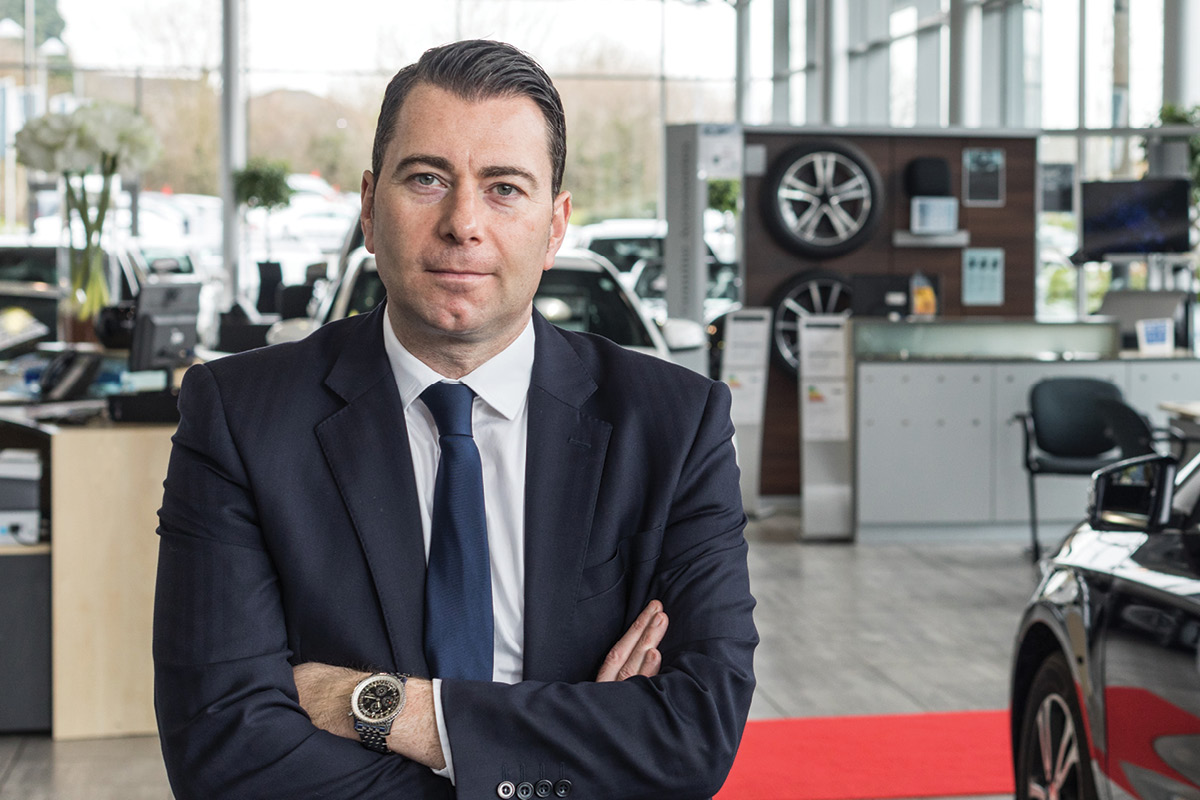Sinclair may be a quintessentially Scottish surname, but in Wales it has been synonymous with high-quality vehicles for more than 70 years. The CEO Magazinemeets Managing Director Andy Sinclair to discuss the evolution of his family’s business, along with the latest motoring trends and the Sinclair Group’s support of the nation’s favourite sport: rugby.
The CEO Magazine: Can you please give us an overview of the Sinclair Group, and how your family has built the brand?
Andy: The company started in 1945 when my grandfather, Bill Sinclair, opened a mechanics garage in Port Talbot. It has grown to become the largest motor group in South Wales, with more than 20 different businesses and a turnover of around £400 million.
The manufacturers we represent are Mercedes, Volkswagen Audi, Seat, Skoda and Smart, and we sell more than 15,000 cars annually. The Group also includes used car businesses, body shops, and our own standalone leasing and contract hire company, the second largest in Wales.
My father, Gerald, Bill’s son, became involved in the business in the 60s, and now myself and my brother Jonathan are managing director and director respectively.
What have been the biggest challenges you have faced since becoming managing director? How have you worked to overcome them?
Managing growth is always a challenge. It’s an ever-changing environment, so we’ve got far larger businesses than ever before and we have to employ a lot more people – we are one of Wales’ top private business employers, with a staff of 850.
The talent pool in South Wales is reasonably limited because it’s not a massive area, so we must ensure that we attract the right staff and that we train and develop them properly, which means ensuring all staff have appropriate motoring experience and knowledge as well.
What gives the Sinclair Group its point of different in the market?
One of the major things that we focus on is that we have a family ethos and culture, but we operate on a large enough scale to have almost PLC [publicly listed company] policies and procedures as well. The owners and directors are in the business every day, so our staff can really feel they’re part of the family business because they see the people who make the decisions.

But equally, because we have so many business outlets and so many operations, we have to be very structured, so our policies and procedures mirror a PLC. Also, because of our relatively small geographical scale, we have a unique ability to genuinely offer staff a job for life with real career progression. We have people in the business now who have been with us 30 or 40 years.
What would you identify as the main factors that influence consumer purchasing decisions when it comes to buying a car? Has it changed over the years?
Price always has and will be the main factor. But the internet, which is fantastic, is also a challenge because it gives full transparency around what customers can expect for their current car, as well as a deal on a new car.
But, beyond price, customers have to feel that they’re dealing with a face-to-face company they can believe and trust in, and we’re very keen that we create the right level of customer interaction in the businesses. There will always be a place for bricks and mortar in the motor trade.
Customers will do a level of online searching, but then they will want to see and feel the car. The online broker can offer you the price on the car, but they can’t service your car or demo the car for you.
So we make sure that the theatre is ours, from the meet-and-greet all the way through to the test drive and hopefully the close of the business.
What are some of the innovations in the industry that you are particularly excited about?
The advent of electric and hybrid vehicles that is due to explode across Europe and the world is one. We’ll see a significant reduction in the number of diesel or petrol engines.

The products we have chosen are world-leading products
With all the technology the manufacturers are developing, one day we’ll move all the way to autonomous driving where the individual driving the car will play a much smaller part in the engagement of the vehicle and the car will almost drive itself.
You can see there are lots of manufacturers that offer a standalone parking system where you can get out of the car and the car will park itself, so that sort of innovation is fantastic.
Some of the technology coming into the showroom is also really exciting, such as 3D imaging allowing customers to configure a car with added features. I see the theatre of the showroom visit going to another level in the next 2 to 3 years.
As one of the largest private companies in Wales, what role do you play in the community? Can you tell us about some of the community work you are doing?
It’s a core value of ours to represent the community as much as we possibly can, so we have various initiatives, from sponsor days when children come in and have a look around all our departments, to graduate training programs for school leavers, and apprentice schemes for young people leaving work and wanting to go into the workshops.
Wales is very passionate about rugby, so we sponsor schools at the grassroots level to try to encourage people to be involved in the game. We are also a sponsor at the very highest level in rugby, as a main sponsor and supplier to the Welsh Rugby Union.
Being a family-built brand, what is the best piece of advice that you have ever been given?
It’s all about people. In the motor industry, the product is essential, and it’s no coincidence the products we have chosen are world-leading products.

However, if your product is excellent but your staff are poor, then there’s every chance you’re going to fail. So looking after your staff and then allowing them to have the skill sets to look after your customers are absolutely key.
What are your current areas of focus for growing the business?
Used cars and service are 2 absolutely key growth areas for us. The new-car market is a tough market because of the number of channels that the customer can now access.
In the used-car industry, unfortunately, regardless of brand, a significant portion of people don’t buy cars from the main dealers; they buy instead from used-car supermarkets.
Certainly a massive challenge for us is to grow our penetration in the used-car market and to significantly increase the numbers of slightly older used cars that we sell – the 3-to-6-year-old market.
In terms of service, communicating the message to the customer that we are an affordable way to service a car is very important.
We provide customers with a really cost-effective, peace-of-mind way of servicing their cars and want to be the ultimate choice when it comes to vehicle maintenance.



